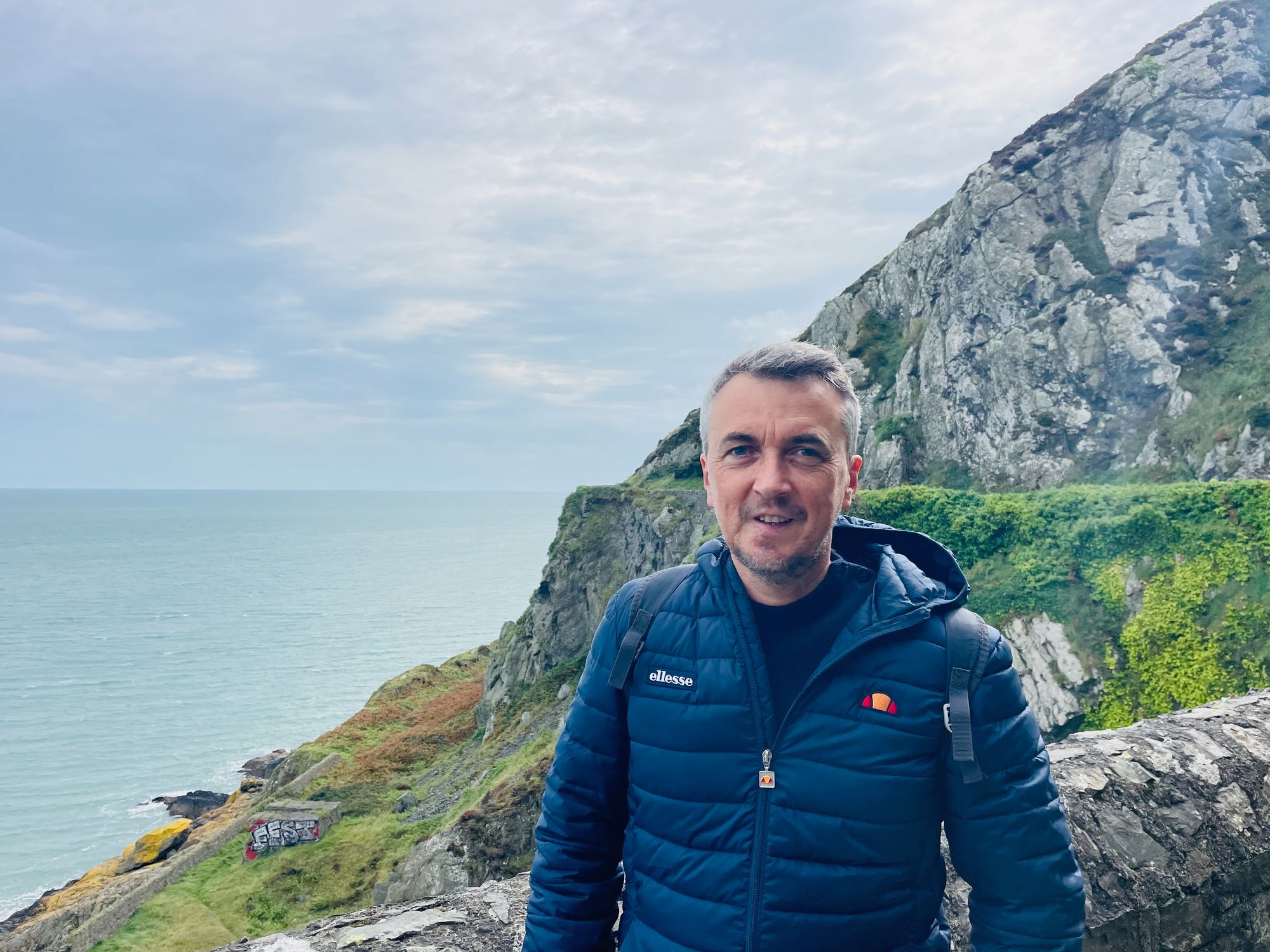The Tibi Initiative – A French Approach to Financing Tech Scale-Ups

As Europe seeks new ways to finance its tech champions, France’s Tibi initiative offers a fresh approach—mobilizing institutional capital to support strategic scale-ups. This article sheds light on a model that is increasingly gaining attention across the continent.
Introduction
Over the past months, many colleagues and contacts—both in Ireland and elsewhere—have asked me about the Tibi initiative, a French mechanism that has gained attention in European innovation circles. While the name is often mentioned in discussions about deep tech and scale-up financing, the specifics of how it works are not always clear.
This article aims to provide a concise and accessible overview of the Tibi mechanism, based on the French experience. It is not intended as a model to follow, but rather as a contribution to the ongoing conversation across Europe about how we can better support high-potential technology companies and strengthen our shared innovation ecosystem.
From Report to Reform: The Origins of the Tibi Initiative
The initiative owes its name to economist Philippe Tibi, a former banker and professor at École Polytechnique, who authored a 2019 report commissioned by the French government. His diagnosis was simple: despite producing some of Europe’s most promising startups, France was not providing them with the scale-up capital they needed to become global leaders.
Too often, promising French companies were acquired early, or turned to non-European investors—particularly from the U.S. or Asia—for later-stage funding. This trend was seen as both an economic risk and a question of technological sovereignty.
Following the report, the French government invited institutional investors (such as insurance companies and pension funds) to step up. This led to the launch of the Tibi Charter, a voluntary framework through which these investors commit to allocating significant amounts to French and European tech funds.
How Does It Work?
One of the distinctive features of the Tibi initiative is that it does not involve the creation of a new public fund, nor does it rely on direct government subsidies. Instead, it follows a market-driven logic that seeks to mobilize existing private capital—particularly from long-term institutional investors such as pension funds, insurers, and sovereign wealth managers.
These investors are invited to sign the "Tibi Charter", a voluntary commitment under which they agree to allocate part of their portfolio—usually over a multi-year horizon—to private investment funds that meet specific eligibility criteria. These criteria include:
- A demonstrated capacity to support late-stage venture or growth equity;
- A commitment to investing in innovative French and European companies;
- Alignment with France’s strategic technological priorities.
Crucially, the capital is not managed centrally. Instead, the Tibi initiative operates through a decentralized architecture: dozens of private equity and venture capital firms are certified as eligible vehicles for Tibi-labelled investments. These funds are independently managed, and they compete for capital in the usual way, based on their performance, sector focus, and investment strategy.
The initiative specifically targets companies in the Series B, C, or pre-IPO stages—a funding segment often referred to as the “valley of death” in the innovation lifecycle. These are companies that have already proven their business model but need substantial capital to scale internationally, invest in R&D, or industrialize their technology. At this stage, the amounts required often exceed the risk tolerance of traditional venture capital, while remaining too risky for most conservative institutional investors—hence the need for this intermediary mechanism.
To ensure credibility and coordination, the initiative is overseen by a strategic committee under the French Treasury, which reviews investor commitments and fund certifications. While the government does not intervene in individual investment decisions, it plays a crucial role in setting the framework, ensuring transparency, and aligning the initiative with broader national objectives.
In parallel, Bpifrance, France’s public investment bank, supports the initiative by acting as a market facilitator. This includes promoting fund visibility, co-investing where relevant, and ensuring that public tools complement—not crowd out—private initiatives.
By combining a light-touch public role with clear incentives for private actors, the Tibi initiative aims to build a mature, sovereign investment ecosystem, capable of backing the next generation of European tech leaders on their path to global scale.
Two Phases of Investment: From General Tech to Strategic Sovereignty
The Tibi initiative has unfolded in two main phases, reflecting both the maturation of the French tech ecosystem and an evolving geopolitical and industrial context.
Tibi 1 (Launched in 2019) – Building Late-Stage Investment Capacity
The first phase was launched following Philippe Tibi’s 2019 report, with the aim of addressing the shortage of late-stage capital for French tech companies. Twenty-four major institutional investors pledged over €6 billion to private funds targeting growth-stage companies.
This phase supported a broad range of sectors—software, biotech, fintech, robotics, mobility—and catalyzed the emergence of larger French VC and growth equity funds. It helped lay the groundwork for a more robust domestic ecosystem capable of financing Series B, C, and pre-IPO rounds without relying solely on foreign capital.
Tibi 2 (Launched in 2023) – Scaling Up with a Strategic Focus
Building on the momentum of the first phase, Tibi 2 was launched in 2023 with a sharper strategic orientation. By early 2024, €7 billion in new commitments had been secured from a broader and more diverse group of 35 institutional investors, including new entrants like Groupe ADP, MACSF, FDJ, Mérieux Développement and even Pfizer France.
The focus of Tibi 2 is explicitly aligned with Europe’s technological sovereignty agenda. It targets sectors deemed critical for long-term competitiveness and resilience, including:
- Artificial Intelligence
- Semiconductors
- Quantum Technologies
- Cybersecurity
- Climate Tech / Energy Transition
As of April 2024, 92 certified funds (non-listed segment) were managing a total of €22 billion in assets, with the aim of reaching €35–40 billion in portfolio volume. The initiative is also fostering the rise of French-managed growth funds with critical mass—several are already approaching or exceeding €1 billion in size.
Finally, Tibi 2 promotes cross-border European investment, supporting a vision of a more integrated, resilient innovation ecosystem in which French and European capital backs European champions across borders.
What Has Been Achieved?
Since its launch, the Tibi initiative has helped transform the French tech investment landscape by unlocking a new scale of long-term private capital for high-growth companies. As of early 2024, over €8 billion has been effectively allocated to Tibi-labelled funds, and the momentum is continuing to build under Tibi 2.
1. Stronger Financing for Scale-Ups
Although the initiative does not invest directly in companies, it has enabled private investment funds to support major financing rounds for leading French scale-ups. Notable examples include:
- Doctolib, which raised over €500 million in 2022;
- Exotec, with a €335 million Series D to scale globally;
- BlaBlaCar, which remains headquartered in France while expanding internationally.
These companies now have the capacity to grow without depending on non-European capital or relocating abroad—signalling a shift in Europe’s ability to support its own champions.
2. A More Mature Venture Ecosystem
Tibi has significantly accelerated the growth of French VC and growth equity funds. Many have now reached sizes above €300–500 million, and a few late-stage vehicles are approaching €1 billion, a scale previously rare in France.
This deepened ecosystem:
- Attracts more international co-investors;
- Enables French funds to lead or co-lead major rounds;
- Reduces reliance on foreign lead investors in critical sectors.
3. A European Dimension
While the initial phase focused mainly on French firms, Tibi 2 encourages cross-border European investment, reinforcing continental value chains in areas like AI, quantum, and green tech. Several funds now invest across the EU, contributing to a stronger, more integrated European innovation fabric.
4. A Foundation for Sovereignty
Beyond funding, Tibi reflects a broader ambition: to anchor innovation in Europe, build technological sovereignty, and support strategic autonomy in sectors essential to Europe’s future. With institutional investors now more engaged and a growing pipeline of ambitious funds, France—and by extension, Europe—is better equipped to retain talent, value, and strategic control over its innovation assets
A Perspective for Ireland: Points of Resonance and Opportunities for Collaboration
From an Irish perspective, the French Tibi initiative may resonate in several ways—not as a blueprint to replicate, but as an example of how a country can attempt to restructure its financing ecosystem to better serve the ambitions of its innovators.
Like France, Ireland boasts a vibrant and highly internationalised innovation base, with world-class researchers, engineers, and entrepreneurs. The country ranks among the top in Europe for R&D outputs, university–industry collaboration, and foreign direct investment in high-tech sectors. Ireland also benefits from a strong startup ecosystem, supported by Enterprise Ireland, university incubators, and a network of accelerators and clusters.
However, a common challenge remains: how to ensure that homegrown companies—particularly in deep tech, AI, climate technologies, or medtech—can scale from Irish soil without excessive dependence on foreign capital or relocation to larger financial hubs like London or the U.S.
In this context, the Tibi model offers some food for thought. It represents not a single fund or subsidy scheme, but a coordinated effort to mobilize domestic institutional capital—particularly from insurance companies and pension funds—and channel it into long-term, high-impact innovation.
While such investors tend to be conservative, especially in smaller markets, Tibi shows that with the right frameworks, incentives, and political support, it is possible to bring them to the table and expand their role in financing innovation and industrial transition. It also illustrates the potential of market-based instruments that preserve the independence of fund managers while aligning investment flows with national priorities.
Moreover, the initiative opens the door to new forms of cooperation between France and Ireland, especially within the European framework. Some Tibi-labelled funds operate at the European level and could co-invest in Irish and French companies alike—particularly in strategic sectors such as quantum, cybersecurity, or AI. Others may be open to participation by Irish limited partners (LPs), or to the creation of cross-border funds that meet the criteria of both ecosystems. There is also scope for dialogue between Bpifrance and Enterprise Ireland, or between regulatory bodies, to explore shared approaches to innovation financing in Europe.
Of course, the French initiative is still relatively new, and its long-term impact remains to be seen. But it reflects a broader shift: the growing recognition that Europe needs sovereign investment tools—not to close itself off, but to build resilience, retain value, and shape its own innovation trajectory.
As Ireland continues to develop its strategies for supporting high-growth sectors, the French experience might help stimulate useful discussions, not just nationally, but also as part of a wider European effort to build a more integrated deep tech investment space.
